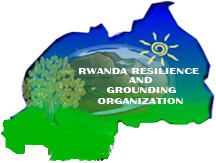
About the Paper
The role of the Community Resiliency Model skills trainings in trauma healing among 1994 Tutsi genocide survivors in Rwanda
Samuel HABIMANA, Evariste MUSEKA, and Emmanuel BIRACYAZA,
Rwanda Resilience and Grounding Organization.
Emmanuel HABUMUGISHA, Rwanda, National Commission for Children.
Jean MUTABARUKA, University of Rwanda, Clinical Psychology Department.
Abstract
The presence and intensity of symptoms of Secondary Traumatic Stress before and after Community Resiliency Model(CRM) skills Trainings were studied among 1994 genocide survivors from three districts of southern province of Rwanda, Huye, Nyamagabe and Nyaruguru. The role of the Community Resiliency Model skills trainings was also studied. An experimental group made up of One hundred and thirty genocide survivors (130) including 73 females and 57 males aged between 25 and 65 years old and a control group made up of one hundred twenty (120) participants including 67 females and 53 males aged between 25 and 65 years old participated in this study. All participants experienced genocide and had lost some of their close family relatives and friends in the 1994 Genocide against Tutsi in Rwanda. Secondary Traumatic Stress was assessed using Pre-Training Participation Questionnaire (PTPQ; α: 0.81) and Secondary Traumatic Stress Scale (STSS; α: 0.80); Depression symptoms were assessed using Patient Health Questionnaire-9 (PHQ-9; α: 0.80); Community Resiliency Models skills were assessed using a self-constructed questionnaire with six CRM skills components (CRMQ; α: 0.75).The intensity of trauma symptoms among participants before CRM skills training was higher in the two groups of participants. After the CRM skills trainings, there was a significant difference of trauma symptoms in an experimental group of participants. Among the experimental group, the trauma symptoms were significantly decreased (t=37, p=.000). CRM skills seem to contribute to trauma healing and to improve mental health quality.
Keywords: CRM, Trauma resilience, Genocide survivors, Trauma healing
About the 4th World Conference on Resilience
Since the word Resilience was used, there are two thousand years, in the legal field, during trials told by Cicéron and Sénèque the Father, the metaphor of the “new development” was adopted in numerous domains. Indeed, the Resilience interests the researchers and the practitioners of epistemic fields very different: psychology and psychiatry, ecology and socioecology, social work, rehabilitation, education, functioning of organizations, science of materials, economy, culture, right and international relations.
The interest carried in the Resilience and the important volume of research results accumulated during the years tend to structure at present a science of the Resilience, designed as the science of the functioning of the complex systems subjected to disturbances. At the same time, the psychological Resilience – Which knew an enormous development – faggot and, at the same time, intrigues by the dissonance between its complexity and the fact of being the result of a process involving factors which have nothing exceptional. It pulls, sometimes, an everyday acceptance of the Resilience.
If the development of a science of the Resilience leads to often accessible theorizations only in a circle restricted of specialists, the everyday acceptance is at the origin of formulations of type concept “umbrella”, “variable-geometry” concept, even “Junk term”. These two opposite trends explain, in good part, the recurring character of the question: ” to what is of use the Resilience? “.
To bring answers to this question, Resilio – international Association for the promotion and the dissemination of research on the impact strength – organize in Marseille (France), from 27 till 30 June 2018, in partnership with the LPED – University Aix-Marseille, the Fourth world congress on the Resilience. On this occasion, researchers and practitioners of all the domains where is used the concept of Resilience can exchange on the professional practices based on the concept of Resilience, draw up balance sheet available “know-how”, to discuss how the theory of the Resilience modified their practices and to determine the future working directions.
Serban Ionescu et Hubert Mazurek
